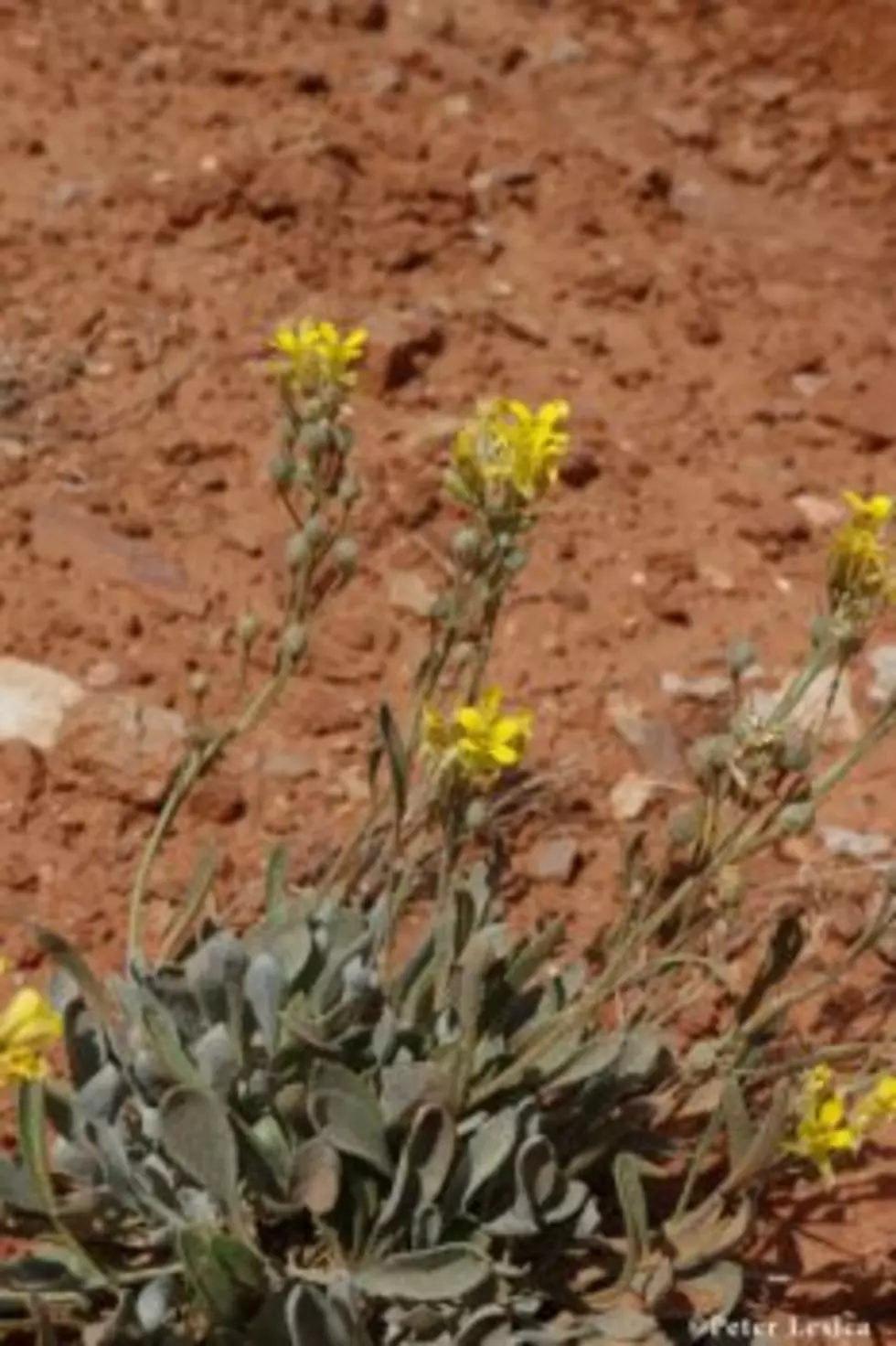
Center for Biological Diversity to sue to protect rare Montana plant
The Center for Biological Diversity has given the U.S. Department of the Interior and the U.S. Fish and Wildlife Service a 60-day notice of its intent to sue for failure to protect a rare plant species only found in the arid deserts of the Pryor Mountains in southern Montana and northern Wyoming.
The thick-leaf bladderpod is small plant that is only found in the Pryor Mountains. It grows on crusty, “cryptobiotic” soils and there are less than a dozen places in the Pryor Mountains where it’s found. The Center worries that both gypsum mining exploration, which would cause the soil to be disturbed, as well as off-road vehicles, which may inadvertently run over the plants, may lead to its extinction.
The four-page letter, which is addressed to Interior Secretary Deb Haaland and Martha Williams, a Montana appointee of President Joe Biden to the Fish and Wildlife Service, said that the USFWS is in violation of federal law, which requires a determination of whether to list the thick-leaf bladderpod to the Endangered Species Act.
The Center for Biological Diversity submitted an application with the corresponding materials to the FWS in March 2021. The agency accepted it, and on Feb. 8, 2022, issued a “positive 90-day finding,” in which it said that listing the thick-leaf bladderpod “may be warranted.”
The Center, along with other plaintiffs Montana Native Plant Society and the Pryors Coalition, said that it invites the BLM and FWS to communicate and engage in the process, but said in its four-page letter to Williams and Haaland that it stands ready to “pursue litigation” to protect the thick-leaf bladderpod because the one-year window to make a determination about the plant’s future had expired.
The Center for Biological Diversity pointed out that already the BLM has designated the plant as a “sensitive species” and the Montana Natural Heritage Program as a “species of concern.”
In 2015, a regional management plan, approved by the BLM’s Billings Field Office, recommended the area be closed to mining because of “its large concentration of sensitive plant species.
“This recommendation, sadly, has not been approved: The future of the thick-leaf bladderpod remains in grave danger,” the letter said.
Scientists also believe the chance of the plant being found outside of the Pryor Mountains is unlikely.
“New discoveries of additional populations outside the Pryor Foothills (are unlikely) due to the unique substrate and specific habitat requirements of the plant,” the letter said. “With such a small population the loss of any plants could be detrimental to the continued survival of the species.”
The USFWS did not return requests for comment on the letter.
